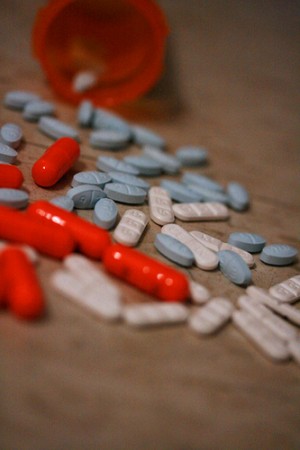Feds Send Drug Czar to New Hampshire to Sell Drug Monitoring Program

Amanda M Hatfield / Flickr
New Hampshire has the second highest rate of young people abusing prescription medications
New Hampshire is one of only two states in the country that does not have a prescription drug monitoring program. The other state without one is Missouri. But New Hampshire has another distinction– the second highest rate of prescription drug abuse among young people in the nation. The increase in abuse of prescription medications such as Oxycontin, Percocet and methadone has led to an increase in emergency room visits and an increase in deaths. Currently more people die here from drug overdose than from traffic accidents.
That’s sobering news for a state with a major prescription drug problem. New Hampshire lawmakers have consistently rejected setting up a statewide database that would allow health professionals and law enforcement to find out who is getting commonly abused prescription medications. The argument here in the “Live Free or Die” state is that documenting residents’ prescription drug use is a violation of their privacy.
The Obama administration disagrees. The White House sent its Drug Czar Gil Kerliowske to the state to defend the drug monitoring program. Kerlikowske says states can create a program that protects individual privacy rights.
“So far across the country we seen rarely if any problems from one of these systems.” He warns that without this kind of ongoing monitoring New Hampshire’s outlaw prescription drug habit will continue to get worse.
“You don’t want to become a magnet for these patients” Kerlikowske says. “We’ve seen places where patients go from state to state. You don’t want to get that kind of reputation.”
In the last decade New Hampshire’s illicit drug use has doubled.
“There’s an access issue,” says Tym Rourke, Director of Substance Use Disorders Grantmaking for New Hampshire Charitable Foundation.
“These kinds of programs help prevent doctor shopping, help do a better job of tracking what prescription drugs are in the community and who’s getting them so law enforcement can really monitor that. Without it we can become a haven for people who are seeking drugs for their own inappropriate use or to sell them.”
Rourke says doctors in New Hampshire have no way to get information on whether patients who come to them are in fact “doctor shopping” and may have a prescription drug problem.
“Every other state has figured out how to tackle the privacy issue and I think from the public safety standpoint we can’t wait much longer without that kind of tool because it’s costing too much.”
Setting up a prescription drug monitoring program would cost the state $2 to $3.5 million. Is there a sign that state legislators may warm up to the idea? Rourke says policymakers in the state have become more receptive to creating a database because the numbers of deaths from drug overdoses in New Hampshire continue to climb.